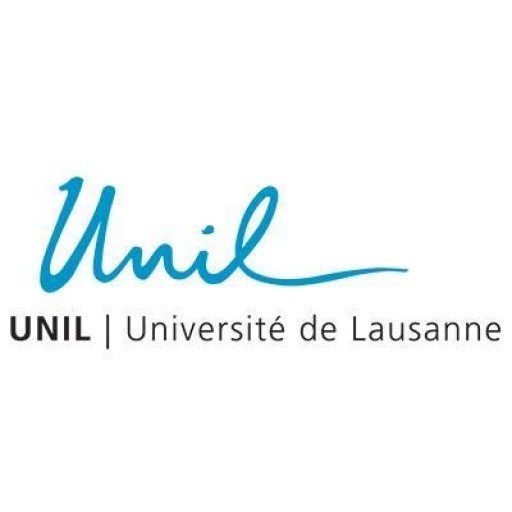Photos of university / #unilch
The Bachelor’s degree in Medical Biology at the University of Lausanne offers students an in-depth understanding of the fundamental biological processes underlying human health and disease. Designed for individuals interested in pursuing careers in biomedical research, healthcare, or related fields, this programme combines rigorous coursework, laboratory training, and research projects to develop essential skills in molecular biology, genetics, cell biology, biochemistry, and physiology. Students will explore topics such as human anatomy, immunology, microbiology, and pharmacology, gaining a comprehensive knowledge base to understand disease mechanisms and potential therapeutic approaches.
The programme emphasizes a multidisciplinary approach, integrating theoretical knowledge with practical laboratory experience to prepare students for real-world applications. Students have the opportunity to participate in cutting-edge research projects, fostering critical thinking, problem-solving, and independent working skills. The curriculum is designed to build a solid foundation for advanced studies or careers in clinical research, diagnostics, biotechnology, and pharmaceutical industries. Throughout the programme, students will engage with experienced faculty members, participate in seminars and workshops, and collaborate with peers on innovative projects.
The University of Lausanne provides a stimulating academic environment supported by modern laboratories and learning resources, ensuring students receive a high-quality education aligned with current scientific developments. Graduates of the Medical Biology programme are well-equipped to pursue master's studies in related fields or enter the workforce as qualified professionals in the biomedical sciences sector. The programme also encourages ethical research practices and awareness of societal implications of medical advancements, preparing graduates to contribute responsibly to healthcare and scientific innovation. Overall, this programme offers a comprehensive education for those passionate about understanding the biological foundations of medicine and dedicated to making significant contributions to health sciences.
The Bachelor’s degree in Medical Biology at the University of Lausanne offers students a comprehensive introduction to the fundamental principles of biology with a focus on health and disease. The program is designed to provide students with a solid foundation in the biological sciences, emphasizing both theoretical knowledge and practical laboratory skills. Throughout the course, students explore the molecular and cellular mechanisms underlying human health, disease processes, and the functioning of biological systems in the context of medicine.
The curriculum includes core courses in biochemistry, cell biology, genetics, microbiology, and physiology. Students also gain insights into human anatomy and histology, enabling them to understand the structure and function of tissues and organs. In addition, the program emphasizes the importance of research methods and data analysis, equipping students with critical thinking skills necessary for scientific inquiry. Laboratory work is a significant component, providing hands-on experience in techniques such as microscopy, molecular biology assays, and biotechnologies.
The program aims to prepare students for diverse careers in the biomedical and healthcare sectors, including research, clinical laboratories, biotechnology, and public health. It also provides a robust platform for those interested in pursuing advanced studies or specialization in medical sciences, biomedical research, or healthcare-related fields. Students are encouraged to participate in internships, often in collaboration with local hospitals and research institutes, to gain practical experience and network within the scientific community.
Throughout their studies, students at the University of Lausanne benefit from experienced faculty members engaged in cutting-edge research, who bring the latest scientific developments into their teaching. The university fosters a collaborative and innovative learning environment, promoting interdisciplinary approaches and critical analysis. Graduates of the Medical Biology program are well-equipped with the knowledge, skills, and practical experience needed to contribute effectively to advancements in medical sciences and healthcare improvement efforts.
Programme requirements for the Bachelor in Medical Biology at the University of Lausanne include a strong foundation in biological sciences, chemistry, and mathematics, ensuring students are well-prepared for advanced study and research in biomedical fields. Applicants should have completed secondary education with a robust background in sciences, including biology, chemistry, and physics. Proficiency in English is essential, as the program is delivered in English, and students must demonstrate language skills through standardized tests if necessary.
During the application process, candidates are expected to submit transcripts demonstrating high academic achievement in relevant courses. Prior experience or familiarity with laboratory work and scientific research is advantageous, though not mandatory. The program emphasizes critical thinking, analytical skills, and a keen interest in understanding the mechanisms of human health and disease.
Students are required to participate in a series of core courses covering cell biology, genetics, biochemistry, physiology, and molecular biology. The curriculum also integrates practical laboratory sessions, fostering hands-on experience in scientific techniques. As part of their studies, students undertake supervised research projects and internships, encouraging the development of experimental and investigative skills necessary for careers in biomedical research, healthcare, and related fields.
To graduate, students must accumulate the required ECTS credits, pass all assessments, including written exams, practical evaluations, and presentations, and complete a final year research thesis. The program promotes interdisciplinary learning, integrating aspects of medicine, biology, and technology, preparing graduates for various professional paths or for further specialization through master's or doctoral studies. Admission is competitive, with the university seeking motivated applicants who demonstrate a genuine interest in medical sciences and research.
Funding options for the Medical Biology program at the University of Lausanne include a variety of financial aid opportunities designed to support both domestic and international students. Students are encouraged to explore the Swiss government scholarships, which are available to students from certain countries and can cover tuition fees and living expenses. The university itself offers various forms of financial support, including grants and bursaries, based on academic merit and financial need. Additionally, students may seek to secure funding through external organizations, foundations, and research grants pertinent to biomedical sciences. International students often benefit from specific scholarship programs, which may include partial or full tuition waivers, depending on eligibility criteria. It is recommended for prospective students to consult the university’s official website or contact the admissions office directly for the most current information on available financial aid, application procedures, and deadlines. Some students might also consider part-time work opportunities on campus to support their studies, adhering to visa regulations. The university also participates in national and European student mobility programs, which can provide additional funding options. It is important for students to carefully review the eligibility requirements and application procedures for each funding source well in advance of the respective deadlines to maximize their chances of securing financial aid. Overall, the University of Lausanne endeavors to make higher education accessible to a diverse student body by providing comprehensive financial support options, ensuring that students can focus on their academic pursuits without undue financial hardship.
The Bachelor’s Degree in Medical Biology at the University of Lausanne offers students a comprehensive introduction to the fundamental principles of biological sciences with a specific focus on human health and disease. The program aims to equip students with a solid foundation in various disciplines including cell biology, genetics, biochemistry, anatomy, physiology, and microbiology. Throughout the course, students engage in both theoretical learning and practical laboratory work, fostering essential skills in scientific research, data analysis, and critical thinking.
The curriculum emphasizes understanding the mechanisms underlying human biological function and the pathology of diseases, preparing students for further specialization or careers in biomedical research, healthcare, or related sectors. Students have opportunities to participate in laboratory internships and research projects, which enhance their hands-on experience and understanding of current scientific methodologies. The program also stresses the importance of ethical considerations and current developments in medical science, ensuring graduates are well-versed in contemporary issues and innovations.
The duration of the program typically spans three years, corresponding to six semesters, with a structured progression from fundamental biological concepts to more advanced topics and research training. Students are assessed through a combination of written exams, laboratory reports, oral presentations, and research projects. The program encourages active participation and collaborative learning, often involving team projects and seminars.
Graduates of the Medical Biology program at the University of Lausanne are well-prepared for diverse career paths including scientific research, clinical laboratories, pharmaceutical industries, biomedical companies, and further academic studies such as master's programs or doctoral research. The university’s strong international network and partnerships with research institutes provide students with additional opportunities for internships and exchanges abroad.
In addition to academic excellence, the program fosters critical skills such as analytical thinking, problem-solving, and effective communication, which are essential for success in the rapidly evolving field of medical sciences. Overall, the Medical Biology bachelor's program at the University of Lausanne represents a rigorous and comprehensive training ground for students passionate about understanding the biological foundations of health and disease, and to contribute to advancements in medicine and healthcare through research and innovation.










